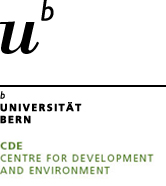Agroecology and safe food system transitions in Southeast Asia (ASSET)

Agriculture in Southeast Asia is at a crossroads: Will countries continue to employ models of intensive agriculture that rely heavily on chemical inputs and capital, or can they pursue innovative agroecological systems that help to promote sustainable development? The intensification of conventional agriculture is leading to land degradation, biodiversity loss, and increased health risks for farmers and consumers alike. By contrast, applying ecological principles to agricultural systems and practices can help to improve soil fertility, biodiversity, and availability of water; it can also represent relevant ways to adapt to and mitigate climate change.
Supporting the transition to diversified, agroecological production
A main challenge for the research and development community is to support the transition from a relatively standard and simple model of intensification, to a mosaic of diversified production models. The old model is based on “green-revolution” principles of achieving a large increase in crop production through artificial fertilizers, pesticides, and high-yield crop varieties; the new models would promote safe food systems throughout domestic and export value chains. Specific agroecological initiatives include agroforestry, conservation agriculture, organic agriculture, and integrated farming approaches.
Promoting a shared vision
ASSET’s overall goal is to transform food and agricultural systems in Southeast Asia into more sustainable, safer, and inclusive systems by harnessing the potential of agroecology. To ensure that this vision is shared by all stakeholders, it will apply a comprehensive approach that includes research, networking, policy advocacy, capacity development, awareness raising, and communication. ASSET will be active in Vietnam, Laos, Cambodia, and Myanmar.

Promoting agroecology and strengthening policy dialogue at local, national, and regional level
Specifically, the project aims to:
- Strengthen the Agro-Ecology Learning Alliance in South-East Asia (ALiSEA), transforming the platform into a knowledge hub that synergizes stakeholder engagement and initiatives to achieve a transition to agroecological and safe food systems, locally and regionally;
- Promote agroecological and safe food system transitions through capacity development and communication to a broad audience that includes consumers;
- Co-design and support territorial approaches to innovation, including technical, organizational, and institutional changes;
- Design a common methodological framework to assess performance, impact, and enabling conditions of innovations and pathways to agroecological and safe food system transitions, from the local to the global level;
- Foster and strengthen existing policy dialogue on agriculture, food, health, and trade at local, national, and regional levels, regularly bringing in lessons learnt.
CDE to set up a knowledge hub
CDE is well-versed not only in generating, analysing, and synthesizing knowledge for policy and decision-making – but also in making this knowledge available in user-friendly formats. For the ASSET project, CDE is partnering with CIAT (International Center for Tropical Agriculture) to coordinate the transformation of the ALiSEA platform into a global knowledge hub.
The hub will act as a clearing house, specially designed to capitalize on knowledge on agroecological transitions and safe food systems through links with other databases, platforms, and baseline studies. A major role in this endeavour will be played by repositories of the FAO and CIRAD; platforms and clearing houses of CGIAR; and the databases of WOCAT and the Land Matrix, both of which are managed globally by CDE.
| Further information |
|
|---|---|
| Duration | July 2020 – October 2025 |
| Funding |
Agence Française de Développement (AFD) |
| Lead organization |
|
| Partners | Consortium of 27 institutions, universities,
NGOs, UN organizations |
| Contact |
